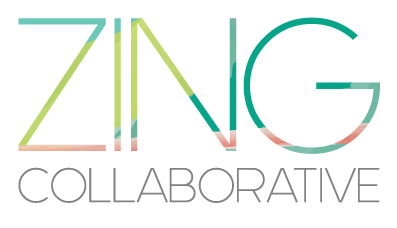3 Questions to Ask When You Feel Frustrated at Work
Since starting my company, I've had the opportunity to spend time with hundreds of teams in various locations throughout the US, through our work together related to leadership, people development, and culture.
In this time, I've observed that there are a few key questions we can ask ourself when we feel frustrated with someone at work to increase our own happiness, while in turn creating ripples of positive impact that improve the overall culture of the organization.
1. Have you shared your feedback directly?
"Whispers" have the power to slowly and painfully poison an organization. Talking about each other, rather than to each other, is quite simply, one of the key differences I've observed between thriving and struggling teams.
When I sit down with a leader from an organization who shares feedback with me about someone on his or her team, I often ask, "have you shared this feedback directly?"
In a thriving organization, the answer is, "oh yes - he's well aware of it, we talk about it often, and he would tell you the same thing."
In a struggling organization, the answer is typically "no," "kind of," or "not really."
If you have an opportunity to give someone constructive feedback, I recommend using my mini-formula of Truth + Heart. This means: telling the truth as you have experienced it, from a place of compassion and kindness. This means being honest and straightforward, with the person's growth and learning in mind.
Helpful phrases to use include, "I've observed," "I've noticed," and "I've experienced."
2. Have you asked for clarity?
Frustration often stems from a lack of clarity, or from making assumptions that simply aren't true. This can be heightened when working with people in different roles, in different offices, or with different styles.
I find that this often stems from something seemingly insignificant, that then snowballs over time. Some examples of ways that we can create more clarity in order to reduce frustrations and create a happier, more productive working environment include asking the following types of questions:
- What is our "in office" policy? Are we expected to be in the office during working hours? What does this look like/what does this mean? What do we consider working hours? If we have options for flexible work hours or remote work, what does this look like and what can we expect from each other?
- How do we agree to communicate with each other? What are our preferences for communication? What are our expectations for responsiveness? If some members of the team travel heavily, how can we reach them in a pinch, while acknowledging that they might be on a plane or in client meetings?
- What are the norms of our office? Do we have a stated open door policy where we expect people to work with their doors open, or do we encourage people to shut their doors to create heads-down focused working time? Do we take phone calls from our cube, or encourage team members to take phone calls in a conference room so that the shared area can remain quiet? Do we welcome pets in the office?
- What are our roles? How can we create clarity in order to fosters ownership and accountability, while also building a culture that encourages an "all hands on deck" mindset?
- If we have a flat structure or practice a version of holacracy, at the end of the day, who is responsible for making a decision when we are at a standstill? How do we deal with an underperforming team member when our self-managing team is stuck? And how can we balance self-empowerment with a desire for clarity and leadership?
Creating clarity up front is a way to create more easeful, joyful, and productive interactions down the line.
3. Are you assuming positive intent?
It can be easy to interpret a short email as rude, or a direct comment as offensive. However, what if we assumed positive intent - that perhaps the email was written quickly, or that the direct comment was a way of getting to the point more quickly, and therefore saving everyone on the team some time?
When we experience a negative reaction to someone else's behavior (or perceived behavior), it can be helpful to pause, breathe, and remind ourselves to assume positive intent.
Practicing the above strategies will not only help us to feel happier and more productive at work, but they also have the power to create positive ripples of impact within our organizations, which over time, creates the type of culture that we all want to be part of.

